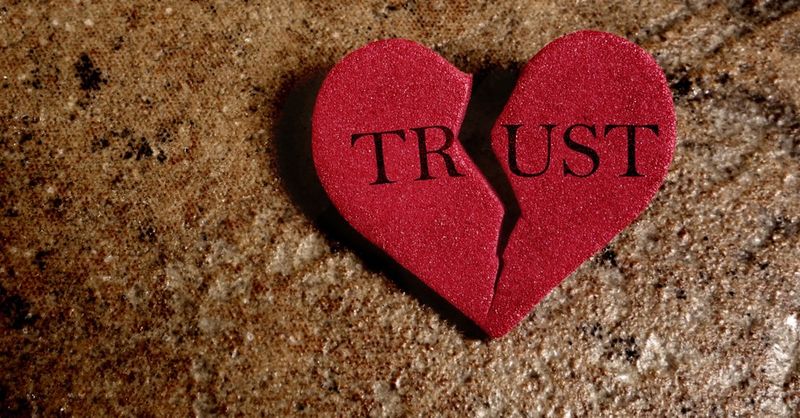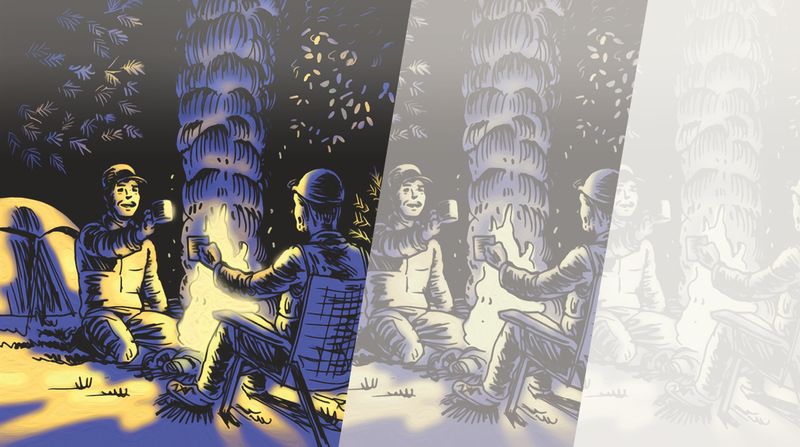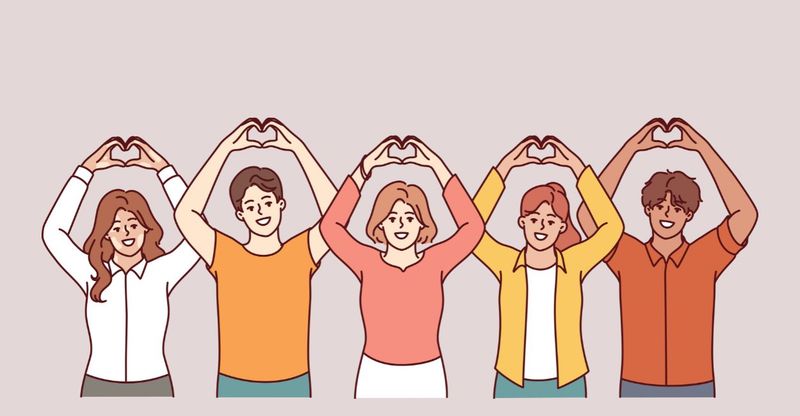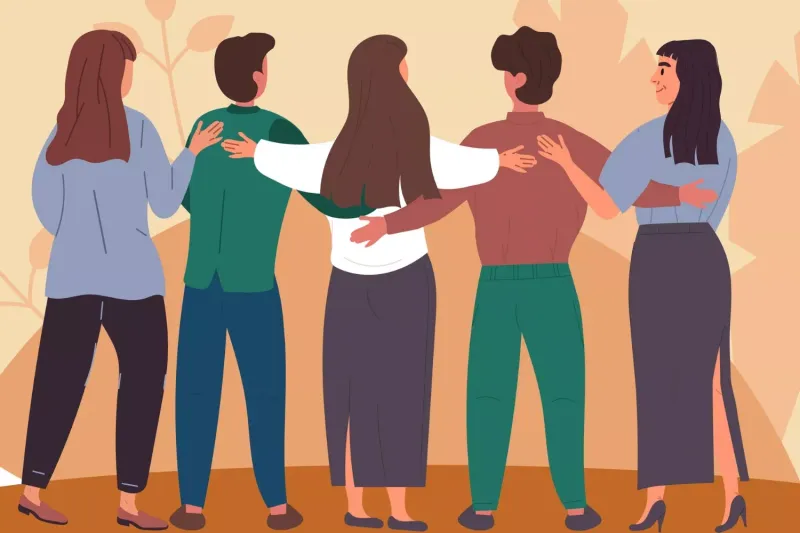17 Reasons You Don’t Have Many Friends — And Why That’s Not a Bad Thing
Let’s rip off the band-aid: not everyone has a full social calendar, group chats buzzing at 3 a.m., or a birthday party that looks like a Pinterest board. And guess what? That doesn’t mean you’re broken. It just means your circle might be smaller — and there’s absolutely nothing wrong with that.
In a world that glorifies popularity and follows, it’s easy to feel like having less means you’re missing something. But the truth? Quality beats quantity every single time — and sometimes, not having a huge friend group is the best thing you didn’t know you needed.
Society constantly pushes the idea that more friends equals more happiness, but that math doesn’t always add up. Having fewer, deeper connections often brings more genuine joy than a phone full of acquaintances who barely know the real you.
Let’s talk about the real reasons you don’t have many friends — and why that might be more powerful than you think.
1. You Value Depth Over Surface-Level Talk

Small talk exhausts you on a cellular level. At parties, you’re the one looking for that one person to have a real conversation with, not fifteen shallow exchanges about the weather or weekend plans.
You crave discussions that make you think, feel, and grow. That friend who will sit with you until 2 a.m. talking about life’s big questions? Worth more than twenty acquaintances who only text when they need something.
Your brain simply isn’t wired for collecting casual connections. You’d rather invest your emotional energy into relationships that matter, ones where you can be fully yourself without the social mask. This selective approach means fewer friends overall, but the ones you have know the authentic you – not just your highlight reel.
2. You’ve Outgrown Your Old Circle

Remember when you thought your high school friends would be your ride-or-dies forever? Life had other plans. As you evolved, some relationships didn’t grow with you – and that’s perfectly natural.
Personal growth often means shedding connections that don’t fit who you’re becoming. Maybe you quit drinking while your friends still party every weekend. Perhaps you developed new interests that your old crew just doesn’t get. Or you might have simply changed your perspective on what matters.
This natural evolution isn’t about being superior – it’s about alignment. When your values, goals, and lifestyle shift, your friendship circle naturally contracts. The friends who remain are the ones who truly complement the person you are today, not the one you used to be five years ago.
3. You Set Boundaries Like a Boss

Gone are the days when you said yes to everything just to keep people happy. You’ve learned that “no” is a complete sentence, and your time is too precious to waste on obligations that drain you.
Setting boundaries isn’t just about saying no – it’s about protecting your energy, time, and emotional wellbeing. Some people won’t stick around when you stop being available 24/7 or refuse to be their emotional dumpster. That initial friend count drop can sting, but it reveals who valued your boundaries versus who just valued your usefulness.
The friends who respect your limits are the ones worth keeping anyway. They understand that you can’t pour from an empty cup and don’t take it personally when you need space. Your smaller circle now consists of people who appreciate the real you – boundaries and all.
4. You Don’t Tolerate Fake Energy

Your authenticity radar is finely tuned. You can spot the difference between genuine interest and social performance from a mile away. Those sugar-coated “love you, girl!” messages followed by consistent disappearing acts? Not your style.
Fairweather friends who only show up when things are good or when they need something have gradually filtered themselves out of your life. You’ve stopped chasing people who make friendship feel like a one-sided transaction.
Your bullshit tolerance has simply dropped to zero over the years. While some people maintain dozens of surface-level friendships filled with pretense and social games, you’ve opted out of that exhausting dance. The result? Fewer friends, but zero fake smiles, forced hangouts, or relationships built on mutual pretending. That’s not a loss – it’s freedom.
5. You’ve Been Burned Before

Trust doesn’t come easily after you’ve experienced friendship betrayal. Maybe someone shared your secrets, stabbed you in the back, or vanished when you needed them most. Those wounds don’t heal overnight.
Being more selective isn’t about being bitter – it’s about being wiser. You’ve learned that not everyone deserves access to your inner world, and that’s healthy self-protection, not a character flaw. Your guard is up because experience has taught you that friendship quality matters more than friend quantity.
The silver lining? When you do let someone in now, it’s because they’ve proven themselves trustworthy. Your friendship standards have risen, naturally filtering out potential repeat offenders. The handful of people who make it past your carefully constructed walls appreciate the privilege of knowing the real you – and they treat that privilege with respect.
6. You’re Selective, Not Snobby

Some might mistake your discernment for snobbery, but there’s a world of difference. You don’t judge others for being different – you simply recognize when personalities, values, and communication styles aren’t compatible with yours.
Being selective means understanding that not every nice person needs to be your friend. Just like you wouldn’t date someone just because they’re not terrible, you’ve stopped forcing connections that don’t naturally click. You’ve outgrown the middle school mentality of collecting friends like Pokémon cards.
This natural filtering process saves everyone time and emotional energy. Rather than maintaining dozens of lukewarm friendships where you’re constantly censoring yourself, you focus on the few where authentic connection flows easily. The result is a smaller but perfectly tailored social circle where everyone genuinely enjoys each other’s company – no forced smiles or awkward silences necessary.
7. You Prefer Solitude Over Social Overload

For you, alone time isn’t just nice – it’s necessary. While others panic at the thought of a dateless Friday night, you secretly look forward to those peaceful evenings of uninterrupted me-time. Your social battery has always had a shorter life span.
Being an introvert in an extroverted world means you need recovery time after socializing. That’s not antisocial – it’s just how your brain is wired. Large groups drain you faster than one-on-one connections, so naturally, you gravitate toward fewer, deeper friendships that don’t leave you emotionally exhausted.
Your need for solitude automatically limits how many active friendships you can maintain. Unlike extroverts who gain energy from each social interaction, you have to budget yours carefully. The friends who understand this part of you – who don’t take it personally when you need space – are the ones who make the cut in your deliberately small but meaningful circle.
8. You’re Focused on Other Priorities

Life gets complicated, and sometimes friendship takes a backseat. Maybe you’re crushing it in your career, raising tiny humans, caring for family members, or working through personal challenges. These seasons demand your attention and energy.
When you’re building a business, healing from burnout, or just trying to keep your plants alive during a tough period, your friendship bandwidth naturally shrinks. This doesn’t make you selfish – it makes you human with finite resources. The myth that we should excel in every area of life simultaneously is just that: a myth.
Your current chapter might require focusing on specific goals that don’t leave much room for an active social calendar. The friends who understand this temporary imbalance and stick around anyway? They’re keepers. And when your season changes, they’ll still be there – no guilt trips or scorekeeping needed.
9. You’ve Relocated More Than Once

Geographic instability is friendship kryptonite. Each move means starting over socially – learning where to find your people in unfamiliar territory. That coffee shop where everyone knew your name? Gone. The neighbor who became your impromptu dinner buddy? Miles away.
Building connections from scratch takes tremendous emotional energy. After the second or third relocation, you might approach new friendships more cautiously, knowing another move could be on the horizon. Long-distance friendships require extra work to maintain, and even with technology, some naturally fade with distance.
Your social network reflects this nomadic pattern. Instead of a dense cluster of local friends, you have scattered connections across different chapters of your life. The silver lining? You’ve developed a keen sense for spotting genuine people quickly and forming meaningful connections that can withstand distance – quality friendships that transcend zip codes.
10. You Avoid Drama Like It’s Your Job

Life’s too short for friendship triangles, passive-aggressive group chats, and who-said-what investigations. You’ve opted out of relationships that feel like emotional reality TV shows, and that decision alone has significantly reduced your friend count.
Drama-centered friendships might provide entertainment for some, but you’ve realized they drain your mental health. You’ve watched friend groups implode over petty disagreements and decided that peace of mind matters more than being part of a chaotic social scene.
Your no-drama policy naturally filters out people who thrive on conflict and gossip. While this means fewer social invitations overall, it also means your life has become remarkably calmer. The friendships that remain are refreshingly straightforward – no walking on eggshells, no complicated alliances, just genuine connection with emotionally mature people who communicate directly.
11. You Don’t Do Obligation Friendships

Life’s too precious to spend it maintaining friendships that exist purely out of habit or obligation. You know the type – the college roommate you have nothing in common with anymore but still meet annually for awkward coffee, or the childhood friend whose values now clash completely with yours.
You’ve quietly stepped away from relationships that persist only because of shared history rather than current connection. While others cling to these outdated bonds out of guilt or nostalgia, you’ve given yourself permission to let go of friendships that no longer serve either person.
This natural pruning process leaves you with fewer total friends but eliminates those draining encounters that leave you wondering, “Why do we still do this?” Your social calendar now contains only gatherings you genuinely look forward to, with people who still make sense in your life – no more checking boxes or maintaining appearances with expired connections.
12. You Have Zero Tolerance for Gossip

Nothing makes you exit a conversation faster than hearing “Don’t tell anyone, but…” followed by someone’s private business. You’ve grown allergic to friend groups where tearing others down counts as bonding.
Your refusal to participate in gossip sessions has likely cost you some social connections. In certain circles, not joining the whisper campaign gets interpreted as judgment or superiority rather than basic human decency. You’ve noticed how quickly gossip-heavy friendships turn toxic – today’s target could be you tomorrow.
Standing firm on this principle means you miss out on some social gatherings, but you sleep better at night. The friends who remain in your life share this value – you can trust them not to dissect your life behind your back. Your smaller circle features people who build each other up rather than bond through tearing others down, creating a friendship ecosystem that actually improves your life.
13. You’ve Been in Survival Mode

Sometimes life hits hard. Health challenges, grief, financial struggles, or mental health battles can consume every ounce of your energy. During these periods, friendship maintenance falls to the bottom of your priority list – and that’s completely understandable.
Survival mode forces you to direct your limited resources inward. The social withdrawal isn’t personal – it’s necessary. Some friends might interpret your absence as rejection rather than self-preservation, causing natural attrition in your social circle during difficult chapters.
The friends who remain understand that healing isn’t linear and relationships sometimes need to hibernate. They check in without demands, offer help without expectation, and welcome you back without guilt trips when you’re ready. Your friendship circle may have shrunk during your darkest times, but those who stuck around have proven their worth. Quality friends shine brightest precisely when life gets darkest.
14. You’ve Changed at Your Core

Personal transformation doesn’t always come with a friendship preservation plan. Major life shifts – sobriety, spiritual awakening, political evolution, career reinvention – can create natural distance between you and people who knew the old version of you.
Sometimes the gap becomes too wide to bridge comfortably. The friends who loved your party-girl phase might not connect with your new wellness journey. Your spiritual community might not understand your career ambitions. These growing pains aren’t anyone’s fault – they’re just the natural consequence of authentic personal growth.
Rather than forcing outdated connections or pretending to be someone you no longer are, you’ve allowed some friendships to naturally conclude their chapter. Your current smaller circle reflects the real you – not who you used to be or who others want you to be. This alignment brings a profound sense of peace that’s worth more than a phone full of contacts who knew a version of you that no longer exists.
15. You’re Guarded For Good Reason

Trust doesn’t come with an automatic reset button. If your friendship history includes betrayal, abandonment, or manipulation, your caution around new connections makes perfect sense. Your walls weren’t built overnight, and they won’t come down that way either.
Being selective about who gets close to you isn’t a character flaw – it’s emotional intelligence. You’ve learned through experience that not everyone deserves access to your vulnerable parts. This hard-earned wisdom naturally limits how quickly and how many new friendships you form.
The friends who make it past your initial barriers understand the privilege of earning your trust. They respect your boundaries, prove their reliability over time, and don’t take your friendship for granted. Your guardedness has become a filtering system that weeds out potential heartbreak and lets in only those worthy of knowing the real you – a smaller group by default, but infinitely more trustworthy.
16. You Want Soul Connection, Not Social Media Clout

The era of collecting friends like social media followers has zero appeal to you. You’ve watched others maintain dozens of surface-level friendships that look great in group photos but offer little emotional sustenance when life gets real.
You’re after something deeper – connections where you can show up fully human, messy parts and all. Friends who know your struggles, not just your highlight reel. People who would drive to you at 2 a.m. if needed, not just double-tap your latest post.
This preference for depth automatically limits your friendship quantity. Soul connections take time, vulnerability, and consistent presence – resources you can only invest in a handful of relationships. While others might have impressive birthday turnouts or bustling group chats, you measure friendship success differently. One person who truly sees and accepts you outweighs twenty who only know your curated public self.
17. You’re Learning to Be Your Own Best Friend

The most important relationship you’ll ever have is with yourself. You’ve discovered that many friendship voids were actually attempts to escape your own company or seek external validation. As you’ve grown more comfortable in your own skin, that desperate need for constant social connection has naturally faded.
Self-friendship means treating yourself with the same kindness, respect, and understanding you’d offer a loved one. It means enjoying solo activities without feeling like you’re missing out, validating your own experiences without needing external confirmation, and setting healthy boundaries without guilt.
This internal shift changes how you approach external relationships. You now seek friends who enhance your life rather than friends who complete it. Your social circle has naturally contracted to include only those who complement your self-sufficient nature. The result? Fewer but healthier connections built on mutual appreciation rather than codependency or fear of loneliness.
18. Your Standards Have Rightfully Increased

Remember when any invitation felt better than no invitation? Those days are gone. You’ve graduated from accepting crumbs of connection to requiring the whole friendship loaf – consistency, reciprocity, genuine care, and aligned values.
Your friendship standards reflect hard-won wisdom, not pickiness. You’ve learned through trial and error what kinds of relationships actually enhance your life versus those that drain it. Flaky people, emotional vampires, fair-weather friends – you’ve met them all and decided you deserve better.
This natural evolution means fewer people clear the bar, but those who do bring actual joy to your life. Your friendship circle has naturally contracted to include only those who meet your reasonable standards. The result? Less drama, disappointment, and one-sided effort. You’ve traded quantity for quality in the most empowering way – and while your social calendar might have fewer entries, each one brings genuine anticipation rather than obligation.







